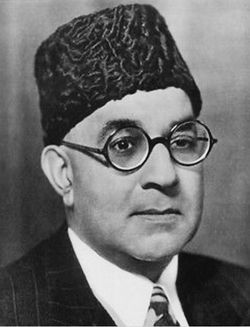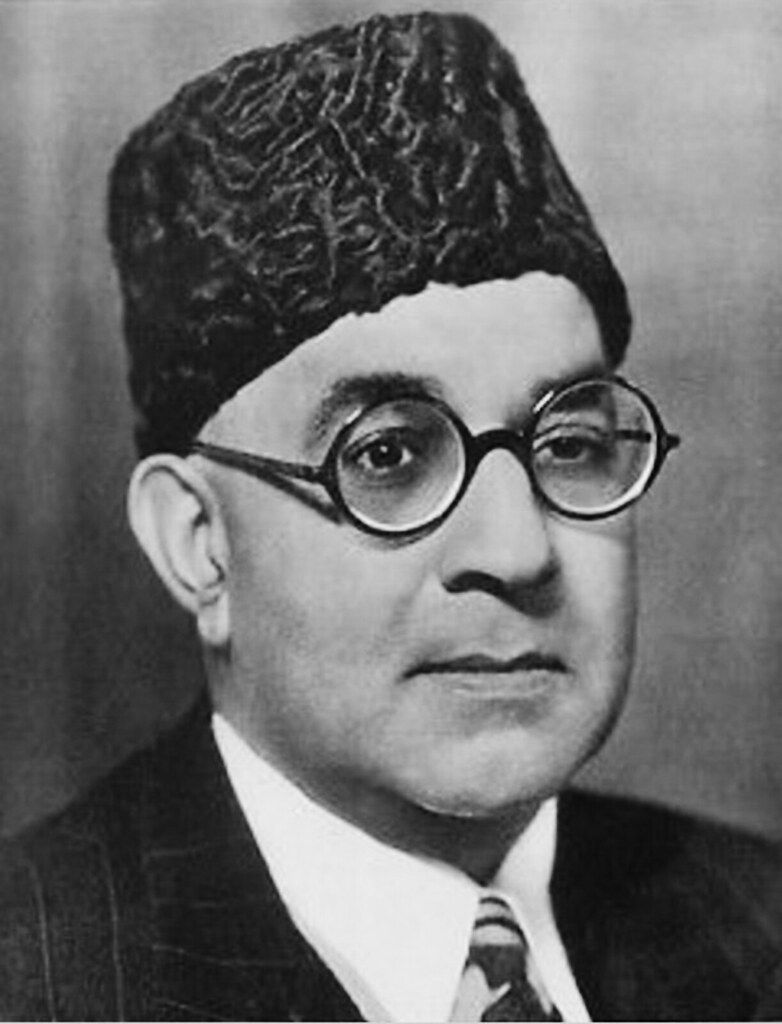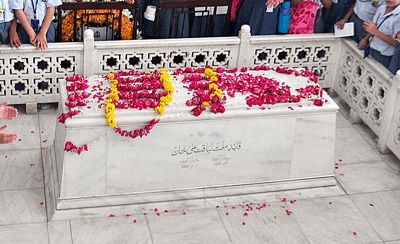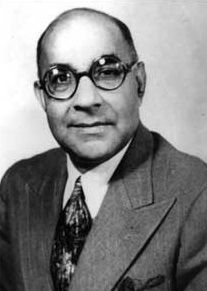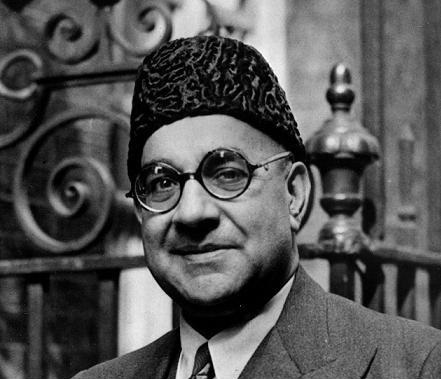Pakistani Prime Minister, Lawyer. He served as the 1st Prime Minister of Pakistan from 1947 until his assassination in 1951. He was posthumously given the title Shaheed-e-Milat (Martyr of the Nation). Born in Karnal, British India, he was the second of four sons of a wealthy landowner. He attended the Muhammadan Anglo-Oriental College (now Aligarh Muslim University) in 1910, graduating with a Bachelor of Science degree in Political science and LLB In 1918. He then attended Oxford University and, in 1921, was awarded a Master of Law in Law and Justice. While a graduate student at Oxford, he actively participated in student unions and was elected Honorary Treasurer of the Majlis Society, a student union founded by Indian Muslim students to promote Indian students' rights at the university. In 1922, he was called to the English Bar but never practiced. He returned to India the following year and entered into politics. He was determined to undo what he saw as injustice towards Indian Muslims under the British and British Indian Governments. He joined the Muslim League in 1923 and was elected to the provisional legislative council in the 1925 elections from the rural Muslim constituency of Muzaffarnagar. In 1928, he was one of the 24 Muslim League delegates chosen to attend India's All Parties Convention to consider the Nehru Report. Mohammad Ali Jinnah was the Muslim League spokesman at the convention, and from that time, Ali Khan became a devoted follower. In 1930, he and Jinnah attended the First Round Table Conference, but it ended in failure, forcing Jinnah to retire from national politics and permanently settle in London and practice law before the Privy Council. In 1932, Khan became the Deputy President of the United Provinces (UP) Legislative Council. When Jinnah returned to India in 1935, he started to reorganize the Muslim League and asked Ali Khan to become its General Secretary in 1936. He held that position until 1947. In 1940, the Pakistan Resolution was adopted. The same year, Khan contested from the Barielly constituency in the elections that were held for the central legislative assembly. He was elected without contest. On August 14, 1947, Pakistan gained independence, and he was appointed the first Prime Minister of Pakistan. His government had to deal with several serious problems, including the settlement of millions of Muslim refugees from India, the setting up of a central government in Karachi, the creation of a sound economic system, and the crisis over Kashmir, which immediately led to war between India and Pakistan. In 1951, he was assassinated by Said Akbar Babrak while addressing the public in Rawalpindi.
Pakistani Prime Minister, Lawyer. He served as the 1st Prime Minister of Pakistan from 1947 until his assassination in 1951. He was posthumously given the title Shaheed-e-Milat (Martyr of the Nation). Born in Karnal, British India, he was the second of four sons of a wealthy landowner. He attended the Muhammadan Anglo-Oriental College (now Aligarh Muslim University) in 1910, graduating with a Bachelor of Science degree in Political science and LLB In 1918. He then attended Oxford University and, in 1921, was awarded a Master of Law in Law and Justice. While a graduate student at Oxford, he actively participated in student unions and was elected Honorary Treasurer of the Majlis Society, a student union founded by Indian Muslim students to promote Indian students' rights at the university. In 1922, he was called to the English Bar but never practiced. He returned to India the following year and entered into politics. He was determined to undo what he saw as injustice towards Indian Muslims under the British and British Indian Governments. He joined the Muslim League in 1923 and was elected to the provisional legislative council in the 1925 elections from the rural Muslim constituency of Muzaffarnagar. In 1928, he was one of the 24 Muslim League delegates chosen to attend India's All Parties Convention to consider the Nehru Report. Mohammad Ali Jinnah was the Muslim League spokesman at the convention, and from that time, Ali Khan became a devoted follower. In 1930, he and Jinnah attended the First Round Table Conference, but it ended in failure, forcing Jinnah to retire from national politics and permanently settle in London and practice law before the Privy Council. In 1932, Khan became the Deputy President of the United Provinces (UP) Legislative Council. When Jinnah returned to India in 1935, he started to reorganize the Muslim League and asked Ali Khan to become its General Secretary in 1936. He held that position until 1947. In 1940, the Pakistan Resolution was adopted. The same year, Khan contested from the Barielly constituency in the elections that were held for the central legislative assembly. He was elected without contest. On August 14, 1947, Pakistan gained independence, and he was appointed the first Prime Minister of Pakistan. His government had to deal with several serious problems, including the settlement of millions of Muslim refugees from India, the setting up of a central government in Karachi, the creation of a sound economic system, and the crisis over Kashmir, which immediately led to war between India and Pakistan. In 1951, he was assassinated by Said Akbar Babrak while addressing the public in Rawalpindi.
Bio by: Tasik Austin
Advertisement
See more Ali Khan memorials in:
Explore more
Sponsored by Ancestry
Advertisement
